| A Story of Warmth and Comfort: Finding Your Perfect Fireplace at Campeau Heating |

Imagine yourself in the warm glow of a burning fire on a cool evening as the sun sets in a blaze of colours. This lovely scenario is now a reality thanks to Campeau Heating's amazing collection of fireplaces, which includes the stunning Napoleon Outdoor Fireplaces.
Choosing the right fireplace is more than just selecting a heating appliance; it's about creating an ambiance, a focal point that enhances your lifestyle. At Campeau Heating, we understand this sentiment and offer a diverse range of styles and types to cater to your unique needs.
Step into our showroom, one of Northern Ontario's largest, and let our trained staff guide you through the array of options. Whether you seek a cozy addition to your backyard oasis or a statement piece for your outdoor entertaining area, we have the perfect fireplace waiting for you.
Our commitment to quality extends beyond our products; it encompasses our service as well. From your first inquiry to the final installation, our team ensures a seamless and enjoyable experience.
If you're ready to transform your outdoor space into a haven of warmth and elegance, fill out the form below. Our dedicated sales team will be delighted to discuss your requirements and provide you with a tailored solution at a competitive price.
Experience the warmth, comfort, and service that Campeau Heating offers. Visit us today and embark on a journey to find the perfect fireplace for your lifestyle.
|
|
|
| A Story of Warmth and Comfort: Finding Your Perfect Fireplace at Campeau Heating |

Imagine yourself in the warm glow of a burning fire on a cool evening as the sun sets in a blaze of colours. This lovely scenario is now a reality thanks to Campeau Heating's amazing collection of fireplaces, which includes the stunning Napoleon Outdoor Fireplaces.
Choosing the right fireplace is more than just selecting a heating appliance; it's about creating an ambiance, a focal point that enhances your lifestyle. At Campeau Heating, we understand this sentiment and offer a diverse range of styles and types to cater to your unique needs.
Step into our showroom, one of Northern Ontario's largest, and let our trained staff guide you through the array of options. Whether you seek a cozy addition to your backyard oasis or a statement piece for your outdoor entertaining area, we have the perfect fireplace waiting for you.
Our commitment to quality extends beyond our products; it encompasses our service as well. From your first inquiry to the final installation, our team ensures a seamless and enjoyable experience.
If you're ready to transform your outdoor space into a haven of warmth and elegance, fill out the form below. Our dedicated sales team will be delighted to discuss your requirements and provide you with a tailored solution at a competitive price.
Experience the warmth, comfort, and service that Campeau Heating offers. Visit us today and embark on a journey to find the perfect fireplace for your lifestyle.
|
|
|
| Breathe Easy: Improving Your Indoor Air Quality This Summer |
 
As the warm summer months approach, many of us are getting ready to open the windows and let in some fresh air. But have you examined the quality of air in your home? Indoor air quality (IAQ) is a crucial but sometimes disregarded feature of our living environment, particularly during the summer months when we spend more time indoors with closed windows and doors.
Why Indoor Air Quality Matters
Indoor air quality refers to the cleanliness and healthiness of the air within buildings, including homes, offices, and schools. Poor IAQ can have a significant impact on our health, leading to respiratory issues, allergies, and other health problems. Common pollutants that affect IAQ include:
-
Dust and dust mites
-
Pollen
-
Mold and mildew
-
Pet dander
-
Tobacco smoke
-
VOCs (Volatile Organic Compounds) from household products and building materials
-
Indoor air pollutants can be especially problematic during the summer when we rely on air conditioning, which can recirculate indoor air, trapping pollutants inside.
Tips for Improving Indoor Air Quality
Fortunately, there are several steps you can take to improve the indoor air quality in your home:
-
Keep it Clean: Regular cleaning, including dusting, vacuuming, and mopping, can help reduce dust and allergens in your home.
-
Control Humidity: Use a dehumidifier to maintain indoor humidity levels between 30-50% to prevent mold growth.
-
Ventilation: Proper ventilation is key to maintaining good IAQ. Open windows when possible and use exhaust fans in kitchens and bathrooms.
-
Air Purification: Consider using air purifiers with HEPA filters to remove airborne particles and improve air quality.
-
Reduce VOCs: Choose low-VOC or VOC-free household products and materials when possible.
-
No Smoking: Smoking indoors can significantly reduce indoor air quality. If you smoke, do so outside.
-
Regular Maintenance: Maintain your HVAC system and change filters regularly to ensure it is working efficiently.
Benefits of Improving Indoor Air Quality
Improving indoor air quality can have several benefits, including:
-
Improved respiratory health
-
Reduced allergy symptoms
-
Better sleep
-
Increased comfort and well-being
-
Enhanced productivity and cognitive function
As we prepare for the summer months ahead, let's not forget the importance of indoor air quality. By taking simple steps to improve IAQ, we can create a healthier and more comfortable living environment for ourselves and our families. If you have concerns about your indoor air quality, contact a professional HVAC technician to assess your home and recommend solutions. Breathe easy this summer with cleaner indoor air!
|
|
|
| Your Trusted Sudbury Heating Company: Providing Quality Equipment, Service, and Installations |

At Campeau Heating, we take pride in being your trusted Sudbury heating company. We understand the importance of having a reliable and efficient heating system to keep your home comfortable, especially during the cold winter months. Whether you need a new heating system installed, maintenance for your existing system, or repairs, our team is here to help.
Quality Products and Brands
We are committed to providing our customers with top-of-the-line products that exceed industry standards. We work with some of the most trusted brands in the industry to ensure that you receive the best possible heating solutions for your home. Our selection includes:
Expert Installations and Reliable Service
Our team of skilled technicians is dedicated to providing quality installations and reliable service. We understand that each home is unique, which is why we offer a variety of heating system models to fit your specific needs. Whether you need a furnace, boiler, heat pump, or unit heater, we have the expertise to ensure a perfect fit for your home, family, and budget.
Contact Your Sudbury Heating Experts at Campeau Heating
Not sure which heating solution is right for your home? Our Sudbury heating specialists are here to help. Contact us today to discuss your heating needs and find the perfect solution for your home. Call us at (705) 560-2441 or fill out the form below to get started. Our sales team will be happy to assist you and provide pricing information for our heating solutions.
|
|
|
| Inhale, Exhale, Improve: The IAQ Guide for Sudbury Homes |

As Sudbury's winter gently gives way to the promise of spring, our attention turns to maintaining cozy, inviting homes amidst the shifting temperatures. While choosing the right heating system is important, another important factor that often goes unnoticed is indoor air quality (IAQ) as we embrace this season of change.
Why does Indoor Air Quality matter? Let's explore the reasons why it should be a priority for every homeowner.
Health and Well-being
Indoor air quality directly impacts our health and well-being. Poor IAQ can lead to various health issues, including respiratory problems, allergies, and even more serious conditions over time. Dust, pollen, mold spores, and other contaminants can accumulate in our homes, especially during the winter when we keep our windows closed. A high-quality air filtration system can help reduce these contaminants, improving the air we breathe.
Comfort and Productivity
Good IAQ isn't just about securing our health, it also affects our comfort and productivity. Musty air can make us feel lethargic and uncomfortable. Whereas fresh, clean air can boost our mood and energy levels, increasing our productivity and a better overall quality of life.
Protecting Your Home
Poor IAQ can also have long-term effects on your home. Excessive moisture due to poor ventilation can lead to mold growth, which can damage your walls, ceilings, and floors. So if you already had your wall decorated with your favorite wall art be aware
The best solution for this is investing in a good ventilation system that can help protect your home from these issues.
Energy Efficiency
Believe it or not, IAQ can also affect your home's energy efficiency. A well-ventilated home can reduce the workload on your heating system, leading to lower energy bills. Additionally, a clean HVAC system operates more efficiently, saving you money in the long run.
Now let's look into some of the key steps that can help you improve your home's indoor air quality
Air Purifiers
Invest in a high-quality air purifier to remove pollutants from the air.
Ventilation
Always ensure your home is properly ventilated to allow for the exchange of indoor and outdoor air.
Humidity Control
Maintain the right humidity levels in your home to prevent mold growth and improve comfort.
Regular Cleaning
Regularly clean and dust your home to remove pollutants and allergens.
HVAC Maintenance
Schedule regular maintenance for your heating and cooling system to ensure it operates efficiently and doesn't circulate contaminants.
At Campeau Heating, we understand the importance of indoor air quality. That's why we offer a range of solutions to help you improve the air you breathe in your home. From air purifiers to ventilation systems, our team of experts can help you find the right solution for your needs.
Don't overlook the importance of indoor air quality. Connect with us today to learn more about how we can help you improve the air quality in your home.
|
|
|
| Embrace Cozy Living: The Allure of Wood-Burning Fireplaces in Modern Homes |
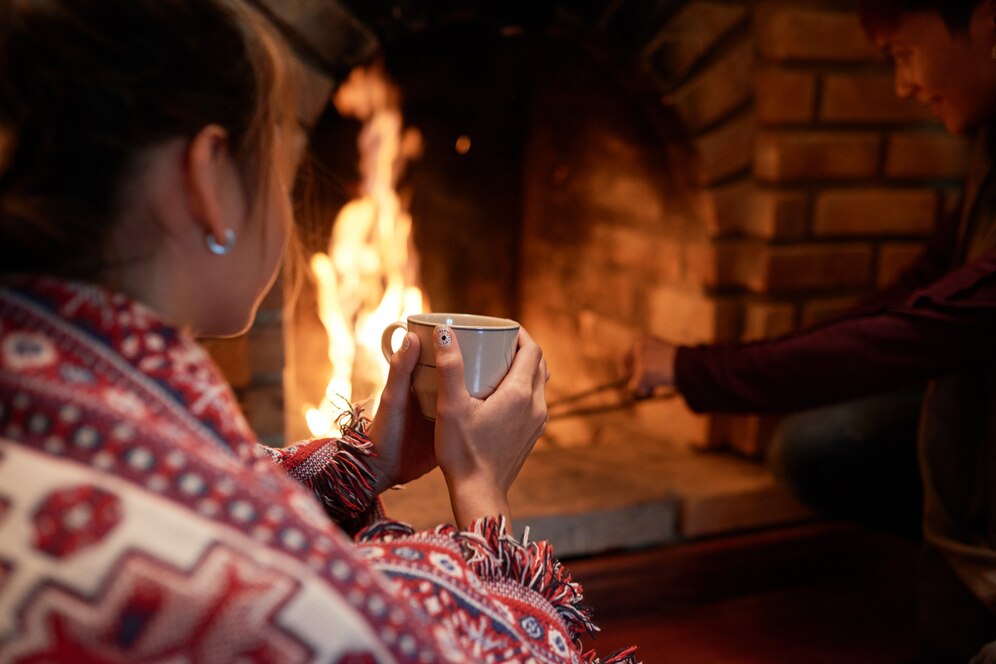
There's something beautiful about the warm crackling of wood burning, and the flickering flames give a calming glow across the room. In our fast-paced, modern lives, the charm of wood-burning fireplaces endures, providing a retreat into cozy warmth that defies trends. Let us dive into the world of wood-burning fireplaces and discover why they continue to have a special place in our hearts and homes.
Embracing tradition in a contemporary world:
In an era characterised by cutting-edge technology and slick designs, the rustic beauty of a wood-burning fireplace is a welcome counterpoint. These timeless installations invoke a sense of history and connection to nature, grounding us in a simpler, more true way.
Creating memorable moments
Wood-burning fireplaces have the unique capacity to create personal moments and profound connections. Whether you're telling stories with loved ones, spending a quiet evening alone, or entertaining a gathering of friends, the fireplace becomes the focus point, providing warmth that goes beyond the physical realm.
Efficiency and sustainability:
Contrary to popular assumption, wood-burning fireplaces can be an environmentally benign heating choice if used properly. Modern designs use innovative technology to maximise efficiency, ensuring that you get the greatest warmth from each wood. Furthermore, choosing ethically obtained firewood reduces environmental effect, making wood-burning fireplaces an informed choice for individuals who value both comfort and sustainability.
Finally, the everlasting attraction of wood-burning fireplaces stems from their capacity to provide not only warmth but also a sensory experience that brings people together. As we traverse the complications of modern life, the simple joy of huddled around a roaring fire reminds us of the beauty found in life's most basic pleasures. So, why not embrace the warmth and beauty of a wood-burning fireplace to create your own pocket of cosy comfort!
|
|
|
| Inhale, Exhale, Improve: The IAQ Guide for Sudbury Homes |

As Sudbury's winter gently gives way to the promise of spring, our attention turns to maintaining cozy, inviting homes amidst the shifting temperatures. While choosing the right heating system is important, another important factor that often goes unnoticed is indoor air quality (IAQ) as we embrace this season of change.
Why does Indoor Air Quality matter? Let's explore the reasons why it should be a priority for every homeowner.
Health and Well-being
Indoor air quality directly impacts our health and well-being. Poor IAQ can lead to various health issues, including respiratory problems, allergies, and even more serious conditions over time. Dust, pollen, mold spores, and other contaminants can accumulate in our homes, especially during the winter when we keep our windows closed. A high-quality air filtration system can help reduce these contaminants, improving the air we breathe.
Comfort and Productivity
Good IAQ isn't just about securing our health, it also affects our comfort and productivity. Musty air can make us feel lethargic and uncomfortable. Whereas fresh, clean air can boost our mood and energy levels, increasing our productivity and a better overall quality of life.
Protecting Your Home
Poor IAQ can also have long-term effects on your home. Excessive moisture due to poor ventilation can lead to mold growth, which can damage your walls, ceilings, and floors. So if you already had your wall decorated with your favorite wall art be aware
The best solution for this is investing in a good ventilation system that can help protect your home from these issues.
Energy Efficiency
Believe it or not, IAQ can also affect your home's energy efficiency. A well-ventilated home can reduce the workload on your heating system, leading to lower energy bills. Additionally, a clean HVAC system operates more efficiently, saving you money in the long run.
Now let's look into some of the key steps that can help you improve your home's indoor air quality
Air Purifiers
Invest in a high-quality air purifier to remove pollutants from the air.
Ventilation
Always ensure your home is properly ventilated to allow for the exchange of indoor and outdoor air.
Humidity Control
Maintain the right humidity levels in your home to prevent mold growth and improve comfort.
Regular Cleaning
Regularly clean and dust your home to remove pollutants and allergens.
HVAC Maintenance
Schedule regular maintenance for your heating and cooling system to ensure it operates efficiently and doesn't circulate contaminants.
At Campeau Heating, we understand the importance of indoor air quality. That's why we offer a range of solutions to help you improve the air you breathe in your home. From air purifiers to ventilation systems, our team of experts can help you find the right solution for your needs.
Don't overlook the importance of indoor air quality. Connect with us today to learn more about how we can help you improve the air quality in your home.
|
|
|
| 4 Types of Home Heating Options to Choose From |
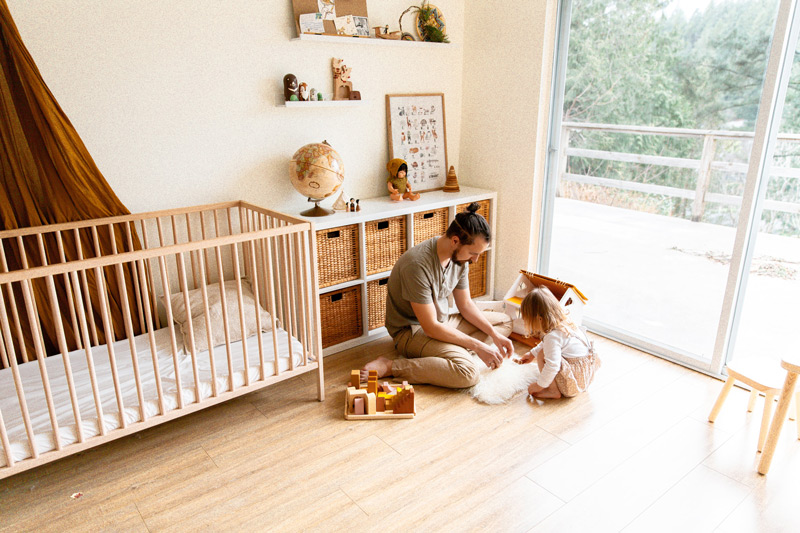
4 Types of Home Heating Options to Choose From
And so the cold weather begins!
We’ve already experienced our first snow here in Sudbury, Ontario.
Just this week, we received a weather advisory to keep off the roads in light of approaching snowfall.
Northern Ontario homeowners are bundling up for an intense winter season. From snow tires to insulation upgrades, Canadians are well on their way to preparing for winter.
Of course, one of the most crucial ways to prepare your home for winter is with the right Sudbury heating system. It should be reliable, affordable and support your lifestyle.
If you’re in the market for a heating upgrade, this article is for you!
Our home heating experts break down 4 different heating systems - from furnaces to heat pumps!
We ensure you have all the information you need to make an informed decision for your home.
Psst…if you have questions or want a FREE QUOTE, don’t hesitate to contact our team!
1. Furnace
Forced air furnaces are central heating systems - meaning they heat the entire house from one unit.
Did you know that furnaces are the primary home heating system in Canada? Over half of Canadian households reported having a forced air furnace in 2021 (Statistics Canada). In Ontario, that number is even higher - at 75%!
Why is this type of heating so popular? Let’s find out!
How It Works:
Forced air furnaces burn fuel to produce heat. That heat then passes through a heat exchanger, making that component hot.
Air from your home is then blown over the hot heat exchanger - effectively warming it.
Distribution:
Once the air is warm, it is blown (forced) throughout your home using a system of ducts.
Top Advantage:
A central furnace system uses the same ductwork as a central cooling system. So you can hook both units up to the same distribution system for all-year-round comfort!
Top Disadvantage:
Depending on the type of fuel used, furnaces can cause a risk of risk of fire, explosions and carbon monoxide poisoning.
Available Fuel Types:
- Natural Gas
- Propane
- Oil
- Electricity
2. Fireplace
Fireplaces are gorgeous additions to your home. They can drastically elevate your living space, create a cosy atmosphere, and bring people together.
These systems also offer an effective solution for zone heating!
How It Works:
There are a few different types of fireplaces - gas, wood, electric, etc.
Essentially, a fireplace creates heat similarly to how a furnace does - by burning fuel.
Distribution:
The heat from a fireplace warms your home using radiant heat. Radiant heat warms objects and people in the room as they absorb it.
It’s the same type of heat you would feel from a bonfire or even from the sun!
Top Advantage:
Fireplaces offer fast and effective zone heating. They are also a great form of supplementary heat or when certain areas of your home are colder than others.
Top Disadvantage:
Depending on the chosen fuel type, fireplaces involve a lot of upkeep and maintenance. They can also become extremely dirty.
Available Fuel Types:
- Gas
- Propane
- Wood
- Electricity
3. Boiler
A boiler is a unique water heating system. Instead of carrying heat in the air, boilers use water to distribute that heat into your home.
While boilers typically provide home heating, they have other uses too! Driveway, swimming pool and hot tub heating are just a few other uses!
How It Works:
Boilers heat water in a central boiler with your chosen fuel type. The heated water or steam produced in this process then travels through pipes to radiators or baseboard heaters in your home.
Once the water cools, it returns to the central boiler to reheat.
Related Article: How Do You Choose The Right HVAC Boiler For Your Home?
Distribution:
Boiler systems distribute heat by sending hot water through a network of pipes in your home. That water then radiates into your home!
Top Advantage:
Boilers are especially known for distributing even, consistent heating.
Top Disadvantage:
Boilers are only used for heating. They cannot cool - making the piping a bit useless for half the year.
Available Fuel Types:
- Natural Gas
- Oil
- Propane
- Electricity
4. Heat Pump
Heat pumps are an up-and-coming home heating and cooling technology. This HVAC system is quickly becoming the favourite for homeowners looking to save money.
How It Works:
There are a few different types of heat pumps, each relying on a different source.
Heat pumps collect thermal energy from water, the earth (geothermal) or the air. They then use that energy to heat your home.
Related Article: Your Energy-Efficient Answer to Year-Round Heating and Cooling
Distribution:
Heat pumps distribute heat throughout your home using ductwork. This makes them a form of central heating!
Top Advantage:
Because these systems transfer heat rather than create it, they can reach up to 400% efficiency!
Top Disadvantage:
These systems aren’t as effective in colder climates. Most heat pumps need a supplementary heating system installed as well. Electrical heating is usually a popular choice for a backup system.
At Campeau Heating, we offer a Hybrid Heat Pump that combines your existing HVAC system with a heat pump component. So you can heat and cool your home with gas, electricity, or both!
Related Article: Should You Replace Your Furnace With a Heat Pump?
Available Fuel Types:
- Ground (Geothermal)
- Air Source
- Water Source
The Bottom Line
Your heating system is the backbone of your home.
We all know how unpredictable Sudbury’s winter weather can be. Ensuring you have the right system to support your home, family, and budget is crucial.
This is an important decision, and our team of heating experts is always here to help. We hope the above guide is helpful in your search for a heating upgrade.
Understanding how each system works and how each can benefit you can help further inform your decision. This information is especially helpful in saving time and money down the road.
Get a Free Quote!
At Campeau Heating, we ensure you have the best heating at the best cost. Get a free quote today on the heating system of your choice!
Call us at 705-560-2441 or request a quote online.
|
|
|
| Furnace Smells To Watch Out For & What To Do Next |
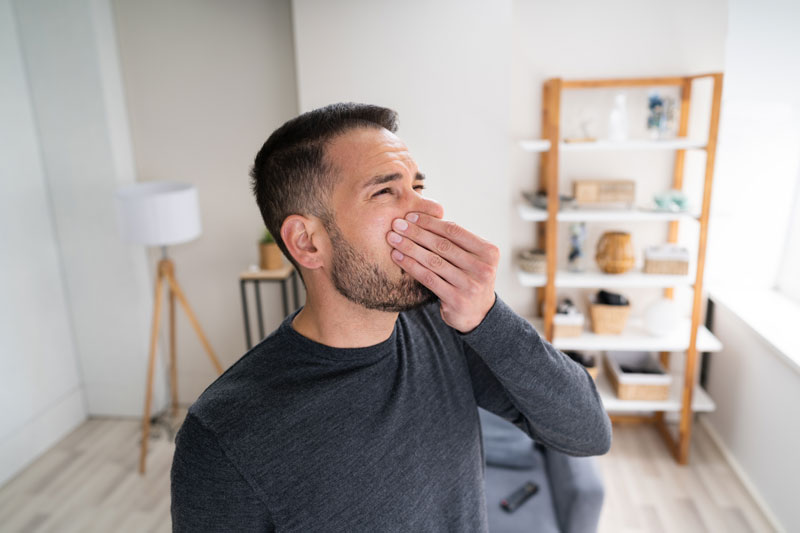
Furnace Smells To Watch Out For & What To Do Next
If you haven’t already cranked the heat up, you will soon! Ontario’s winter forecast is in, and it’s going to be a doozy!
With low temperatures and lots of snow, homeowners are in for it. Better make sure your furnace is ready to take the hit!
If you sense anything amiss with your heating system, now is the time to get it fixed.
Speaking of which…
In this article, our Campeau Heating team explores some not-so-welcome furnace smells. If you’ve yet to turn your furnace on this year, you’ll want to keep these smells in mind. They are warning signs, after all, potentially pointing to bigger issues.
It’s our mission to help you catch these furnace smells before they turn into big repair bills!
Unsafe Furnace Smells & What To Do Next
These are the furnace smells you shouldn’t ignore - they could pose a threat to your health, HVAC equipment and home!
Chemicals (Formaldehyde)
First up is the smell of formaldehyde.
Formaldehyde is a colourless chemical with a strong, almost pickle-like odour.
At room temperature, this chemical becomes a gas, making it a volatile organic compound (VOC).
Burning natural gas, gasoline, wood, tobacco and kerosene all produce formaldehyde. Your system should contain the smell unless there is a crack in your heat exchanger.
While invisible to you, formaldehyde is quickly sensed by your body or environment.
At low levels, it can irritate your nose, eyes and throat.
At high levels, it can pose a fire hazard and cause your furnace to leak carbon monoxide.
What To Do:
Step 1.
Step 2.
Step 3.
Rotten Eggs
The smell of rotten eggs should sound alarm bells in your mind. This furnace smell is one you should always be aware of and on the watch for.
Natural gas is a highly flammable material that can cause a huge fire hazard and gas poisoning.
Because natural gas is odourless, suppliers treat it with something called mercaptan. Mercaptan is what gives off that distinctive rotten egg smell.
They treat the gas so a leak can be easily and quickly detected.
What To Do:
Step 1.
Step 2.
Smoke
If your furnace smells like smoke, this could mean you have a blocked chimney. If this happens, your furnace could start venting smoke through your air ducts and into your home!
What To Do:
Step 1.
Step 2.
Burnt Electrical
A burnt electrical smell could point to:
- An overheated furnace.
- Damaged rubber components.
- Damaged metal components.
Each of these potential issues poses a safety risk in your home. So don’t ignore it!
What To Do:
Step 1.
Step 2.
Hot Metal
The smell of hot metal is like that of burning electrical. But typically, it has more of an iron scent.
This smell could point to an electrical issue or an overheating problem.
What To Do:
Step 1.
Burning Plastic
If your furnace smells like burning plastic, there’s typically a very obvious culprit in the way.
The smell of burning or melting plastic typically points to exactly that - a piece of plastic next to or touching your furnace.
It could be something as small as a dog toy left too close to your system!
What To Do:
Step 1.
Harmless Furnace Smells
These are the smells that you don’t need to worry about - they’re completely harmless!
In most cases, these smells are natural to furnace operation. But if any of these smells are new to you or make you uncomfortable, we highly recommend giving us a call.
Our priority is always your safety, comfort and peace of mind. And our furnace experts work with these systems all day, every day. We know them in and out!
We’ll let you know if the smell is safe or if it has escalated into something harmful.
Mustiness
Musty furnace smells are typically nothing to worry about. The cause is usually moisture trapped inside your furnace. This moisture and smell should both dissipate in a few hours.
If, however, the smell does not leave after a few hours, it may mean you have mould growing in your furnace.
Because mould can be toxic, you should monitor this smell the minute you sense it.
What To Do:
Step 1.
Burning Oil (Diesel)
The smell of burning oil typically points to a clogged furnace filter. Thankfully, this is one of the easiest smells to fix - all you need is a new filter!
Related Article: How To Choose and Care For Your Furnace Filter
We recommend changing your furnace filter every 90 days. If you have a large family or pets, this could increase to every 30-60 days!
What To Do:
Step 1.
Burnt Dust
The smell of burnt dust is very typical if you've just powered on your furnace.
Over the summer, the system’s been sitting in the basement, collecting dust. When turned on again, that dust then begins to burn away. No wonder you can smell it throughout the house!
Don’t worry. It usually only takes a few hours for the smell to leave.
What To Do:
Step 1.
- Let your furnace run until the smell dissipates. If that doesn’t work, call a professional.
Dirty Socks
If you’re smelling dirty socks, your nose probably isn't far off from the truth.
This smell typically indicates a buildup of bacteria in your furnace.
This buildup is usually caused by a buildup of condensation - causing a repulsive odour.
What To Do:
Step 1.
Trust Your Nose - Give us a call!
When it comes to weird furnace smells, you have to trust your nose. While many smells aren't a cause for concern, others could put you and your family at risk.
Keep the above list handy this winter! You never know when you might need to reference it.
We also encourage all our Sudbury homeowners to invest in preventative furnace maintenance.
During this visit, we ensure your furnace is ready for the harsh season ahead. We do our best to lower the rest of furnace breakdowns, leaks and other untimely repairs.
Give our Sudbury heating team a call at 705-560-2441 or contact us online!
|
|
|
| Should You Replace Your Furnace With a Heat Pump? |
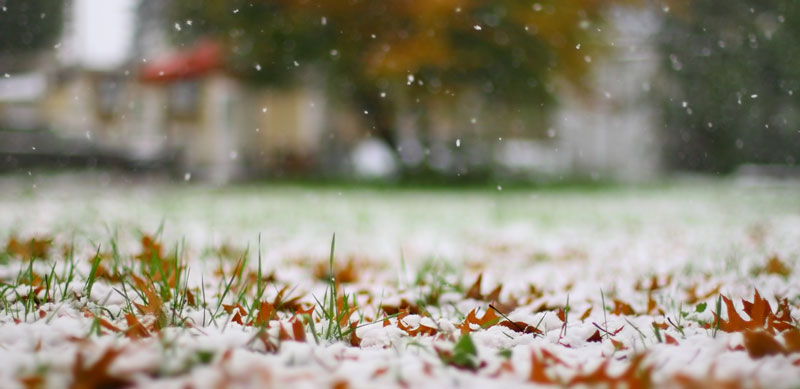
Should You Replace Your Furnace With a Heat Pump?
Old man winter is on his way! It’s only a matter of time before our lakes freeze over and our trees are heavy with snow.
In Northern Ontario, we are no stranger to frigid winters. The real challenge is preparing our homes to take on the cold before it hits!
According to Farmer’s Almanac, we can expect quite the cold and snowy season ahead. If you like skiing or snowmobiling, this is your year! White, fluffy snow and below-average temperatures are well on the way.
But while you gear up for a fun winter outdoors, it’s crucial that you also set up your heating system.
Living in Northern Ontario has taught us one very valuable lesson:
Investing in reliable and affordable heat is imperative!
Is your Sudbury heating system built to withstand the frigid weather ahead? Nobody wants to experience winter with pricy heating and repair bills.
This leaves many homeowners asking whether replacing their furnace with a heat pump is the way to go.
After all, heat pumps are one of the most effective ways to save money on your heating bills!
But replacing your entire system isn’t always the answer.
In this article, we discuss one of our most popular heating upgrades - the hybrid heat pump!
When Is It Time To Upgrade Your Furnace?
Replacing or upgrading your furnace is a big investment. If you’re like most homeowners, you’re planning to wait until it's 100% broken before taking the plunge.
While this may be a good option when saving up for a new heating system, we wouldn’t necessarily recommend it.
Waiting until your furnace stops working means you’ll be making that dreaded no-heat call.
The call nobody wants to make!
It always seems to happen at the worst time - in the middle of the night, during an ice storm or before a big family get-together.
If your furnace stops working in the middle of winter, the temperature in your home is bound to drop - fast! This puts your family at risk - especially if you have young children or elderly individuals living in your home.
No heat also risks your other home appliances, plumbing and HVAC systems.
No-Heat Risks:
- Frozen pipes
- Gas leaks
- Elevated carbon monoxide
For this reason, we typically recommend watching out for a few furnace warning signs. Unusual noises, strange smells and uneven heating are just a few that you should watch out for.
Furnace Warning Signs:
- Poor indoor air quality
- Frequent cycling on and off
- Frequent repair visits
- Excessive dust in your home
- Unusually high heating bills
You’ll also want to check the age of your furnace. These systems last roughly 15-30 years. If yours is nearing the end of its lifespan, you’ll want to start planning an upgrade very shortly.
Heat Pump vs. Furnace
Now that you know when to replace your furnace, it’s time to explore your options.
Today, many homeowners are switching from a traditional furnace to a more affordable heating unit. One of the most popular upgrades is from a fuel furnace to a heat pump. And it’s no wonder!
With today’s advanced technology, heat pumps can reach 300-400% efficiency!
Related Article: The 2-in-1 Heat Pump - Your Energy Efficiency Answer to Year-Round Heating and Cooling
Heat Pump
A heat pump is an all-in-one furnace and air conditioner.
This system transfers thermal energy to heat or cool your home.
In the winter, it can reduce your energy usage by up to 50% compared to electric resistance heating - a must for Sudbury heating!
There are a few different types of heat pumps, depending on the source of thermal energy. The two most popular sources include air and geothermal. But there is an option to use a nearby water source as well!
Heat pumps even offer improved indoor air filtering and dehumidification!
Pros
- Improved home comfort
- Lower energy bills
- Heating & cooling compatibility
- Improved air quality
Cons
- Loses efficiency in lower temperatures
- Higher upfront costs
- Lasts 10-15 years
Furnace
A furnace is a forced air heating system. Instead of transferring existing heat, it uses combustion to create new heat.
Furnaces typically burn fuel (i.e. gas, oil or propane) to create heat. But there are also electric and wood furnaces.
Furnaces have been around since the 1800s. But the process of burning fuel for heat existed long before that. It is a tried and true heating method, and it’s not going anywhere!
Pros
- Improved home comfort
- Reliability in lower temperatures
- Lasts 15-30 years
Cons
- Only offers heat
- Only reaches up to 90% efficiency
- Higher operation costs
Today, forced air furnaces are still considered Canada's primary home heating system. But don't let that sway you!
In light of increased energy efficiency, heat pumps continue to climb in popularity!
Global sales of heat pumps grew by 11% in 2022 alone!
Thankfully, there’s a way to combine the systems and get the best of both worlds.
Introducing The Hybrid Heat Pump
The hybrid heat pump is a dual system that combines your existing furnace with a heat pump.
This upgraded system brings homeowners the benefit of both systems. Your system alternates between them accordingly, depending on which is more efficient at the time.
Hybrid heat pump systems intuitively know when to use one unit over the other. They switch depending on the season, necessary function and temperature.
This dual operation ensures optimal efficiency and home comfort!
Benefits of Upgrading to a Hybrid Heat Pump
Hybrid heat pump systems are great for Ontario homeowners.
As we all know, Ontario experiences all four seasons to their full extent. Our summers are hot and humid. Our winters are frigid and snowy. In Northern Ontario, we especially get the brunt of the weather!
That’s why efficient and reliable Sudbury heating is so crucial. It can make or break your budget and your home comfort!
A hybrid system selects the most efficient heating/cooling unit based on a few factors. It then heats/cools your home as quickly and efficiently as possible.
The goal? To ensure you don’t pay more than you need to for optimal home comfort.
Benefits of a Hybrid Heat Pump
- Lower Carbon Footprint
- Efficient Heating
- Energy-Cost Resilience
- Easy Operation
- Year-Round Home Comfort
See Our Napoleon Hybrid Heat Pump Model
Get a Free Quote
With the rising need for energy efficiency, we offer only the most affordable and effective heating solutions.
That’s why we work with innovative HVAC suppliers like Napoleon!
Napoleon offers unmatched technology and design - providing homeowners with effective, efficient, and affordable HVAC.
Canada Greener Homes Grant
Apply Now
Save up to $5,600 on a new hybrid heat pump!
The Government of Canada is helping Canadians increase energy efficiency in their homes - for less.
Their goal is to help you save money and fight climate change.
Here's how this helps you!
GRANTS FROM $125 TO $5,000
To get back a portion of your costs for eligible home retrofits.
UP TO $600
This is a maximum contribution toward the total costs of your pre and post-retrofit EnerGuide evaluations.
Learn more about the Canada Greener Homes Grant.
Get In Touch
We’ve already been busy helping Sudbury homeowners wind down their A/Cs and prep their furnaces!
Are you ready to get your furnace geared up for the season?
Give us a call at 705-560-2441!
We’ll help you find the best Sudbury heating solution for your home, budget and lifestyle.
|
|
|
| Before You Switch From Cooling To Heating in Sudbury, Ontario! |

Before You Switch From Cooling To Heating in Sudbury, Ontario!
It’s official - fall arrives tomorrow!
Pumpkins and sweaters are in full swing. Kids are back in school. Thanksgiving and Halloween are just around the corner!
While we have mixed feelings about saying goodbye to summer, we can’t deny our excitement for fall.
After all, heating is in our name!
From fireplaces to furnaces, we work with all kinds of heating systems.
We wrote this article to get you in the cosy, fall mood and us hyped for the season ahead!
In it, you’ll find everything you need to know about switching from A/C to heat.
The Risk of Waiting For Cold Weather To Arrive
Powering up home heating in Sudbury, Ontario, isn’t usually a proactive thought. Unfortunately, homeowners don’t get a lot of warning before that first frost hits.
This typically means you wake up to a frigid morning - frantically trying to warm your home up.
While this frantic running around might work in a pinch, it’s not ideal. Not only are you left with the risk of bad air quality and an inefficient system, but you also put your plumbing at risk!
Frozen pipes are no joke. They can lead to some pricy plumbing repairs and even cause water damage to your home.
So, how do you ensure your switch from cooling to heating goes smoothly?
Start preparing today!
How To Prepare Your Heating System For a Smooth Start-Up
To some, it may seem quite early to start thinking of your heating. But we promise you it’s not!
Every year, our emergency repair team gets calls from stressed-out homeowners unprepared for the cold.
Thankfully, after a last-minute tuneup and a few plumbing repairs, they’re on their way! But not without a few unexpected bills…
Preparing your heating system in advance ensures:
- Peak Performance
- Optimal Functionality
- High Efficiency
- Fewer Repairs Throughout The Year
- Lower Heating Bills
- 24/7 System Reliability
Here’s how to get started!
1. Replace The Air Filter
We recommend replacing your air filter at least every 90 days.
Why?
Because a clean filter helps ensure a high-functioning system.
Not only does it keep your system moving air efficiently, but it also ensures that the air is clean.
Clogged air filters wreak havoc on your system and air quality - not a great start to the season!
How do you change your furnace filter on your own? We wrote a whole blog about caring for your furnace filter last year!
Give it a read, and call us if you have any questions.
2. Clear Away Obstructions
Everyone needs space to breathe - even your heating system!
The area you have to clear depends on which system you have.
For example, if you have a fireplace, you’ll want to ensure,
a) The area surrounding it is clear of fire hazards and
b) The chimney flue is clear to prevent smoke and soot in your home.
If you have a furnace, you’ll want to ensure,
a) No nearby clutter can cause a safety issue,
b) No nearby items can reduce airflow, and
c) No nearby products can emit fumes or cause a fire hazard.
What if you have a heat pump?
With a heat pump, you’ll want to focus on the outdoor unit. Here, you’ll ensure no nearby shrubs/bushes are reducing airflow and system performance.
If you have a heat pump, we recommend reading up on preparing your heat pump for peak performance this fall. While many steps are the same from system to system, there are a few specifics to note for a heat pump.
3. Clean Your Heating System
For optimal performance, you should also clean the internal components of your system.
This will, again, differ from system to system.
If you have a fireplace, you’ll need to clean the
- Glass Covering
- Andirons
- Grate
We also recommend clearing the ash and scrubbing out grime with a bristol brush.
If you have a furnace, we recommend focusing your efforts on cleaning the
Cleaning these parts helps ensure the system runs smoothly. It also helps prevent that classic burning dust smell at the start of the year.
4. Clean Your Ductwork/Vents/Chimney
Next up, clean your ductwork, vents and chimney flues (depending on which system you have).
It’s crazy how much dust, dirt and grime pile up in these areas.
We recommend having your ducts and vents cleaned every 3-5 years. If you live in a dustier area (i.e. on a farm), you may want to up it to every 1-2 years.
Your chimney, on the other hand, should have an annual cleaning.
Typically, we’d recommend this cleaning in the spring, as the buildup is easier to clean then. However, if you missed it this last spring, you can still do it now!
5. Test Your Devices
Once your system is clean, it’s time to test things out.
Carbon Monoxide Detector
First up is your carbon monoxide detector.
Psst…we actually recommend that you do this monthly!
To test it, press and hold the test button on the alarm. You should hear 4 beeps, a pause and then 4 beefs for 4-5 seconds (may differ for your specific model).
Don’t forget to change the batteries every 6 months!
Smoke Alarm
Whether your smoke alarm is battery-powered or hardwired, it’s easy to test!
Just press the button on your smoke alarm and hold it down. If the alarm sounds, it’s good to go!
Like your CO detector, don’t forget to change your smoke alarm’s batteries every 6 months!
Thermostat
Turn your thermostat to heat and listen for your furnace to power up. If you hear it cycle on and feel the heat coming from your floor vents, it’s good to go!
If you don’t, it’s time to give our heating techs a call.
6. Schedule Your Fall Furnace Maintenance
Book Now
Lastly, schedule your fall furnace tuneup!
This is typically a precautionary step that we recommend to
a) Ensure optimal performance all winter long,
b) Reduce the risk of unexpected repairs,
c) Help lower your heating bills.
It also helps elongate your system’s life span and ensure good air quality!
When To Switch From A/C To Heat
We recommend switching to heat when outdoor temperatures drop below 60 degrees. However, every home is different! Your heating preference might be slightly higher or lower than that.
The key is to ensure your heat is on before that first frost. This will help prevent plumbing repairs and water damage in your home!
Is it okay to switch between air conditioning and heating?
If you do it correctly, this shouldn’t be a problem!
- Always wait until your system completes its current cycle before switching.
- Don’t set your thermostat too high or low - this could cause unnecessary strain on your system.
What is the best temperature to set your thermostat in the fall/?
We all know the stress of high heating costs.
To help lower those unwelcome bills, we recommend using the following guide:
- Set your thermostat to 20 degrees C while you are home during the day.
- Set your thermostat to 17 degrees C overnight or when nobody is home.
Keeping your thermostat settings within this range ensures a safe and comfortable temperature. It also prevents unnecessarily stressing out your system or raising your heating bills.
More tips to help keep your home warm for less!
Things To Remember For When You First Turn The Heat Up
Here are a couple of things to remember when turning your system on for the first time:
Be Patient - Don’t Rush it!
A common mistake that many homeowners make is cranking the heat up right away.
This is not something we recommend, as it puts unnecessary strain on your furnace. This can leave you with a ridiculous furnace repair and heating bill!
Instead, we recommend taking the process slow. When temperatures start to drop, turn your A/C off.
Then, as it gets colder, turn the furnace on at a lower temperature. Slowly, over a few days, you can raise the temperature to your preference!
Don’t Ignore Strange Noises or Smells
During that first week of heat, we recommend paying close attention to the smells and sounds of your home. Does anything seem off?
Some furnace noises, like a pop, click or dull hum, are typical. But strange furnace noises, like shrieking or whistling, can point to a repair issue.
Smells, like must, rotten eggs or burning plastic, should also sound alarm bells in your mind.
Here are a few more furnace warning signs to look out for!
Start The Season Off Right With Campeau Heating
Ready for a warm and cosy fall season ahead?
Get in touch with our Campeau Heating technicians today! We ensure high efficiency and affordable heating in Sudbury homes all winter!
Call us at 705-560-2441 or contact us online!
|
|
|
| Prep Your Heat Pump For Peak Performance This Fall |
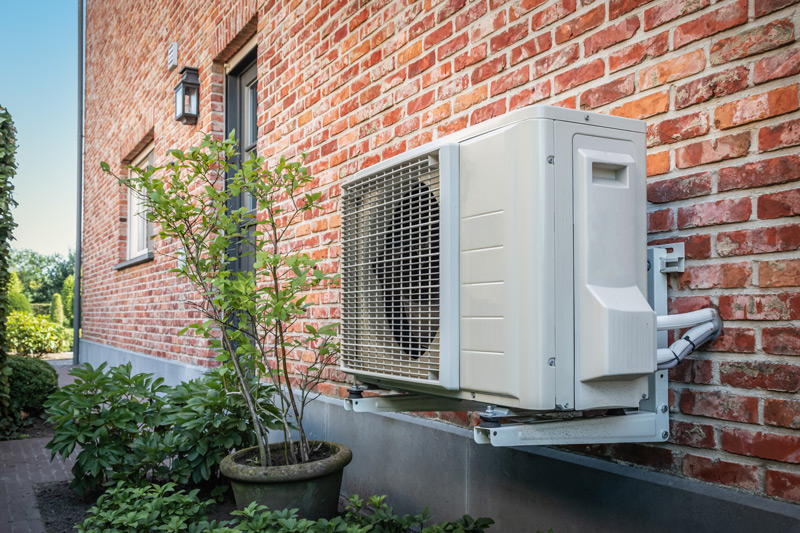
Prep Your Heat Pump For Peak Performance This Winter
It’s hard to believe that fall is just around the corner. After all, Sudbury experienced a crazy heat wave just a few days ago!
Heat warnings of 29 degrees Celsius sent us all running indoors to cool down. Thank goodness for well-working air conditioners!
We only had to make a few quick repair visits to help keep our clients cool during those sweltering days.
Thankfully, the rest of September looks to be cooling down. Highs of 22 degrees and lows of 11 degrees signal that summer is coming to a close. And while fall isn’t here yet, the coming cold is inevitable!
We’ve experienced too many surprise freezes over the years to leave you hanging this fall. Our team is here to help prepare your HVAC before that first frost hits.
In today’s article, we'll provide everything you need to know about prepping your heat pump for the cold. Keep reading to ensure your system operates at maximum efficiency and performance!
Heat Pumps Operate Differently In The Cold
Is this your first year with a heat pump? If so, congratulations on making the switch! Heat pumps are a great investment for your budget and the environment.
You probably know how your system operated over the summer months. But do you know how it works in the winter?
The cooling process is essentially reversed!
Instead of moving heat from the indoors to the outdoors, it transfers outdoor heat into your home.
Depending on the type of heat pump you have, your system extracts heat from the air, ground or water source.
Incredible, right?
Most basic heat pumps operate efficiently until -8 degrees. But there are also models that can work in temperatures as low as -30 degrees!
Learn More About How Heat Pumps Work Here.
7 Tips To Prepare Your Heat Pump For The Cold
October will be here before you know it! Our team has put together a quick list to help ensure your heat pump operates at peak performance throughout the cold season ahead.
Let’s get started!
1. Keep the area surrounding your heat pump unobstructed.
If you had a traditional A/C before installing a heat pump, you would have done this already. Typically, we recommend this simple care step for all outdoor units.
Here’s why:
Shrubs, bushes and other debris can prevent your outdoor unit from operating correctly. These obstructions restrict airflow and can even cause damage to your system.
Keeping the area surrounding your outdoor HVAC unit clear is vital. It ensures maximum efficiency and proper airflow - resulting in better overall performance.
Note: Refer to your system manual for clearance recommendations on your specific model.
2. Protect your outdoor unit from the weather.
Besides keeping your unit clear of obstructions, you also want to protect it from the weather.
But be careful!
Traditional A/C coverings can actually obstruct airflow, just as a nearby shrub can.
For this reason, we don’t recommend traditional A/C coverings for your heat pump. Instead, we suggest installing a cover designed specifically by your unit’s manufacturer.
This cover will
a) Block your unit from falling snow and ice.
b) Act as a windbreaker.
3. Schedule preventative maintenance.
Next up, schedule your annual preventative maintenance visit!
While your heat pump is pretty self-sufficient, we do recommend booking a yearly visit.
During this maintenance visit, our techs will:
- Lubricate mechanical components.
- Measure refrigerant levels.
- Check/Fix any cracks and leaks.
- Inspect belts, pulleys and other parts.
- Replace the air filter.
- Inspect electrical wiring/connections.
- Inspect blower wheels and motors.
- Clean condenser coil fans.
- Flush out the drain line.
- Test heat pump controls.
- Check the defrost function.
- Monitor coil temperatures.
- Check safety features.
- Test the thermostat.
This may seem like an extensive list, but each is essential in
a) Ensuring maximum unit efficiency
b) Preventing mid-season breakdowns/failures, and
c_ Ensuring peak performance.
Book your fall preventative maintenance visit with our Campeau Heating team today!
4. Clean your ductwork.
Since a heat pump is a form of whole-house heating and cooling, your ducts will also need a thorough cleaning.
This maintenance step is typically forgotten (or avoided) by most homeowners. After all, out of sight, out of mind, right?
Maybe not.
The longer you wait to clean your ducts, the worse your air quality will be.
Over time, dust and debris start to accumulate in your ductwork. This can worsen the air quality in your home and cause your system to work harder - lowering efficiency.
Our Campeau Heating team recommends cleaning your ducts every 3-5 years.
5. Clean your air vents and registers.
While you’re at it, don’t forget to clean your air vents/ and registers too!
You’d be surprised how grimy these can get over time. Unfortunately, it’s just another one of those tasks easily put on the back burner.
However, the good thing about this job is that it doesn’t need a routine schedule. Cleaning your air vents and registers is typically done on an as-needed basis.
6. Replace your air filter.
If you’ve already scheduled your preventative maintenance visit, skip this step! Your techs will take care of your filter switch for you.
However, if you aren’t scheduling a maintenance visit this fall, listen up!
Changing your air filter at least every 90 days is crucial for good air quality and system efficiency. This simple step prevents system failure, lowers energy bills and removes health risks.
7. Change your thermostat from “cool” to “heat”.
The final step is switching your thermostat from automatic cooling to automatic heating. This switch reverses the valve inside your heat pump - causing it to work in reverse. Instead of pulling heat from the indoors to the outdoors, it will do the opposite!
Remember, a heat pump isn’t a furnace. You may notice that air from your vents seems cooler than typical furnace heat. This is normal!
Heat pumps transfer heat rather than create it. So, while the warmth you feel may seem minimal, it is highly efficient.
Beware of Your Heat Pump’s Defrost Cycle
You'll typically notice the defrost cycle kick on in -30-degree weather.
The purpose of the defrost cycle is to remove layers of ice covering your outdoor unit.
We usually warn our heat pump customers about this function, since it can seem unnatural. But, this function is actually automatic and 100% necessary.
It's also typically not something you need to worry about. But you should know when it isn’t working correctly.
If the defrost cycle operates correctly, the process will take about 10-15 minutes. During this time, you’ll probably also notice that the air from your vents feels cool.
Don’t worry! It’ll heat back up soon.
If the defrost cycle isn’t operating correctly, you may notice two things:
a) There is a large amount of ice covering your heat pump. This would mean the system failed to remove the ice automatically.
b) The defrost cycle kicks on too often. This could point to an inefficient system or a necessary repair.
If either of these things happens, call your Campeau Heating technician!
Get In Touch
Are you ready for the fall season ahead? Our team ensures your HVAC is ready to keep you and your family warm all season long.
Preparing your heat pump for the cold ensures peak:
- Performance,
- Efficiency,
- Savings and
- Comfort.
Need help prepping your system? Give us a call at 705-560-2441 or contact us online!
Don't have a heat pump yet, but looking to install one? Learn how you can save $5600 on a new heat pump with the Canada Greener Homes Grant!
|
|
|
|
|
![]() | A family tradition since 1948
| A family tradition since 1948